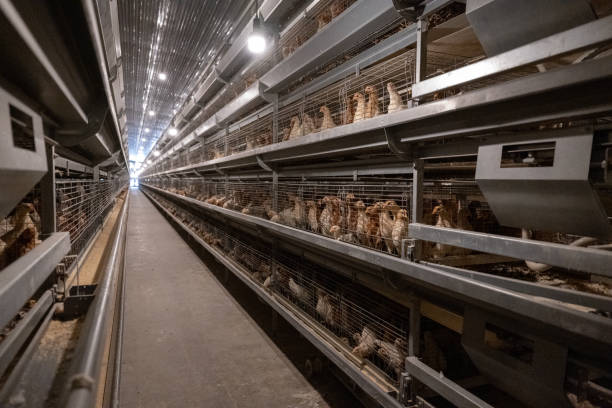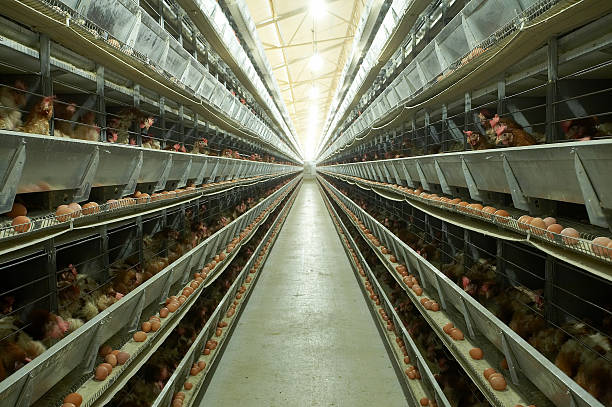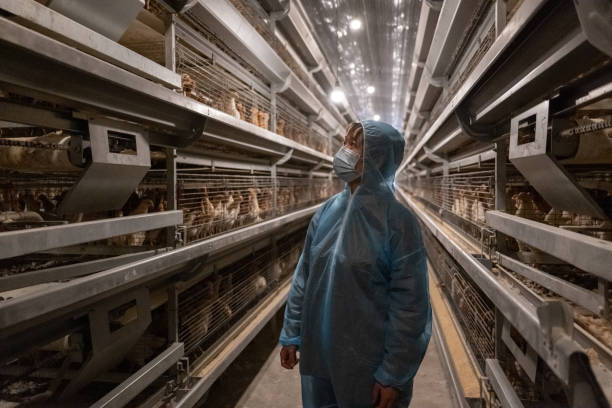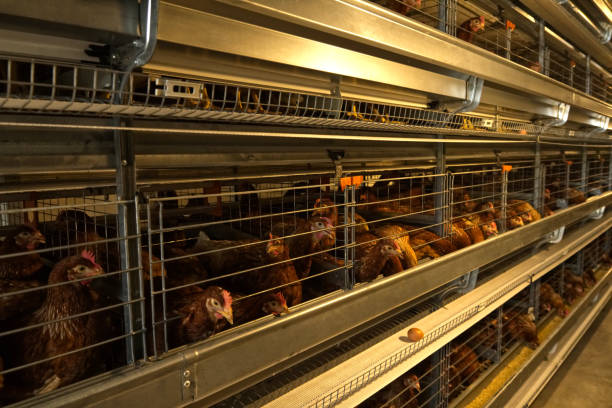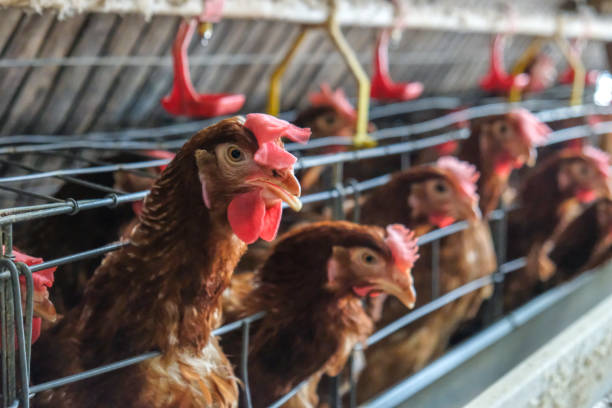Poultry Farming in Nigeria: From Backyard to Business
Poultry Farming in Nigeria: From Backyard to Business
Nigeria, the giant of Africa, boasts a population hungry for protein and a climate ripe for poultry farming. What started as a few chickens scratching around in backyards has blossomed into a vibrant and increasingly sophisticated industry. This article explores the journey of poultry farming in Nigeria, from its humble beginnings to its potential as a major economic force. We’ll delve into the types of poultry commonly farmed, the challenges faced by farmers, and the opportunities available for those looking to enter or expand their operations.
A History of Poultry in Nigeria
Poultry farming in Nigeria isn’t a new phenomenon. For generations, families have raised chickens for eggs and meat, primarily for their own consumption or for small-scale trading within their communities. These chickens were typically indigenous breeds, hardy and accustomed to the local climate, but with relatively low egg and meat production.
The shift towards commercial poultry farming began in the mid-20th century with the introduction of exotic breeds known for their higher productivity. This marked the beginning of a gradual but significant transformation, as farmers began to see poultry farming as a viable business venture. The increasing urbanization and growing middle class further fueled the demand for poultry products, encouraging the development of larger, more intensive farming operations.
Popular Poultry Types in Nigeria
Several types of poultry are commonly farmed in Nigeria, each with its own advantages and market demand:
Broilers: These are meat chickens, specifically bred for rapid growth and high meat yield. Broiler farming is very popular because of the fast turnover rate, allowing farmers to harvest and sell within a relatively short period (typically 6-8 weeks).
Layers: Layer chickens are raised for egg production. Farmers keep them for an extended period (around 12-18 months) to maximize egg output. Different breeds of layers are available, each known for specific egg-laying characteristics.
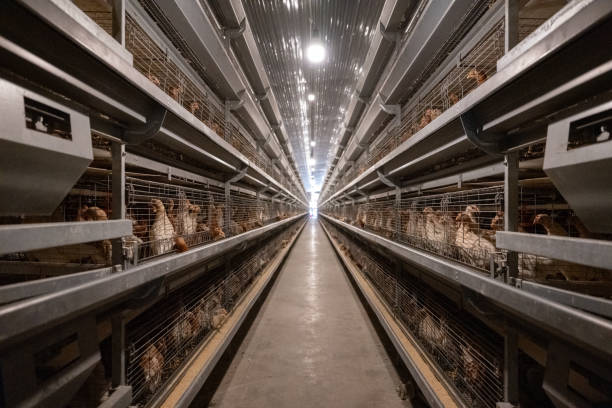
Turkeys: Turkey farming is gaining popularity, particularly around festive seasons like Christmas and Eid. While requiring more space and specialized management, turkey farming can be a lucrative venture.
Local Chickens (Indigenous Breeds): Despite the rise of commercial breeds, local chickens remain a vital part of the poultry sector. They’re often preferred for their unique flavor and resilience, and play a key role in rural economies.
Guinea Fowl: Also known as “Helmet fowl”, are increasingly raised in Nigeria.
The Journey from Backyard to Business: Key Considerations
Transitioning from backyard poultry keeping to a full-fledged business requires careful planning and execution. Here are some essential factors to consider:
Market Research: Before investing, conduct thorough market research to understand the demand for poultry products in your target area. Identify potential customers, assess competitor activity, and determine the optimal pricing strategy.
Business Plan: A well-structured business plan is crucial for securing funding and guiding your operations. It should outline your goals, target market, marketing strategy, financial projections, and operational details.
Site Selection: Choose a suitable location for your poultry farm. Consider factors like accessibility, availability of water and electricity, proximity to markets, and biosecurity risks. Avoid areas prone to flooding or with high population density.
Housing and Equipment: Provide adequate housing for your birds, ensuring proper ventilation, lighting, and temperature control. Invest in quality feeding and watering equipment, as well as waste management systems. Cages are a great option too.
Breed Selection: Choose poultry breeds that are well-suited to the Nigerian climate and market demands. Consult with experienced poultry farmers or extension officers to make informed decisions.
Feed and Nutrition: Poultry feed constitutes a significant portion of the production cost. Ensure you provide your birds with a balanced diet to support their growth, health, and productivity. Consider sourcing high-quality feed ingredients and formulating your own feed to reduce costs.
Health Management: Implement a comprehensive health management program to prevent and control diseases. This includes vaccinations, regular health checks, and biosecurity measures. Consult with a veterinarian to develop a suitable health protocol for your farm.
Biosecurity: Biosecurity is paramount to prevent the introduction and spread of diseases on your farm. Implement strict measures such as controlling access to the farm, disinfecting equipment, providing foot baths, and isolating sick birds.
Waste Management: Proper waste management is essential for environmental sustainability and disease prevention. Compost poultry manure for use as fertilizer, or explore other waste management techniques.
Record Keeping: Maintain detailed records of all aspects of your poultry operation, including feed consumption, egg production, mortality rates, and financial transactions. This information will help you track your performance, identify areas for improvement, and make informed decisions.
Marketing and Sales: Develop an effective marketing strategy to reach your target customers. Consider selling directly to consumers, supplying to retailers, or partnering with restaurants and hotels.
Training and Education: Invest in training and education to improve your poultry farming skills and knowledge. Attend workshops, seminars, and conferences, and stay up-to-date on the latest industry trends.
Financial Management: Practice sound financial management to ensure the profitability and sustainability of your business. Monitor your expenses, track your revenue, and manage your cash flow effectively.
Consider using Poultry cages: Poultry cages can help you improve space utilization and productivity.
Regulatory Compliance: Familiarize yourself with the relevant regulations and obtain the necessary permits and licenses to operate your poultry farm legally.
Challenges Facing Poultry Farmers in Nigeria
Despite the immense potential, poultry farmers in Nigeria face a number of challenges:
High Cost of Feed: Poultry feed prices have been steadily increasing, impacting profitability. Farmers need to explore alternative feed sources and improve feed efficiency to mitigate this challenge.
Disease Outbreaks: Diseases such as Newcastle disease, avian influenza, and Gumboro disease can devastate poultry farms. Effective biosecurity measures and vaccination programs are crucial for disease prevention.
Inadequate Infrastructure: Lack of reliable electricity, good roads, and storage facilities can hinder poultry production and marketing. Farmers in rural areas often struggle with these infrastructure deficits.
Access to Finance: Securing funding for poultry farming can be challenging, especially for small-scale farmers. Banks and other financial institutions often require collateral and have stringent lending criteria.
Market Fluctuations: Poultry prices can fluctuate significantly, depending on supply and demand. Farmers need to be aware of market trends and adjust their production and marketing strategies accordingly.
Predation and Theft: Predators such as foxes, snakes, and wild birds can attack poultry farms. Theft is also a concern in some areas. Farmers need to implement security measures to protect their birds.
Climate Change: Changing weather patterns, such as droughts and floods, can disrupt poultry production. Farmers need to adopt climate-smart agricultural practices to mitigate the impacts of climate change.
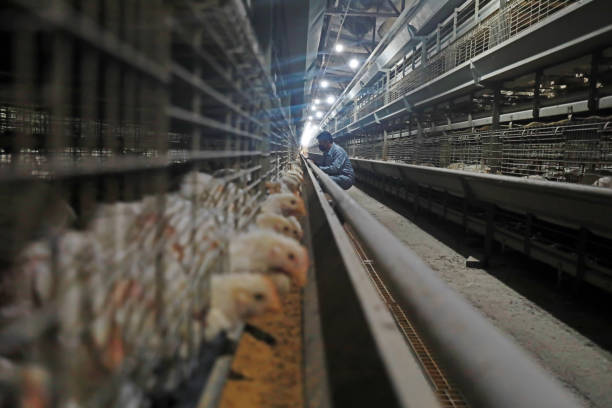
Poor access to Market Information: Many small scale farmers lack access to current prices and market demands, giving wholesalers and retailers an edge.
Opportunities in the Nigerian Poultry Industry
Despite the challenges, the Nigerian poultry industry offers numerous opportunities for entrepreneurs and investors:
Growing Demand: The demand for poultry products is increasing due to population growth, urbanization, and rising incomes. This creates a large and expanding market for poultry farmers.
Government Support: The Nigerian government is promoting poultry farming through various programs and initiatives. These include providing subsidies, training, and access to finance.
Value Addition: There is potential for value addition in the poultry industry, such as processing and packaging of poultry products. This can increase profitability and create new market opportunities.
Export Potential: Nigeria has the potential to export poultry products to other African countries and beyond. This requires improving quality standards and meeting international regulations.
Feed Production: The high cost of feed presents an opportunity for entrepreneurs to invest in feed production. This can reduce feed costs for poultry farmers and create new jobs.
Equipment Manufacturing: There is a demand for poultry farming equipment, such as feeders, drinkers, and incubators. Local manufacturing of these equipment can reduce costs and create employment opportunities.
Veterinary Services: The poultry industry needs qualified veterinarians to provide health care services to birds. This presents an opportunity for veterinary practitioners to specialize in poultry health.
Organic Poultry Farming: With increasing consumer awareness of health and environmental issues, organic poultry farming is gaining popularity. This presents an opportunity for farmers to produce and market organic poultry products.
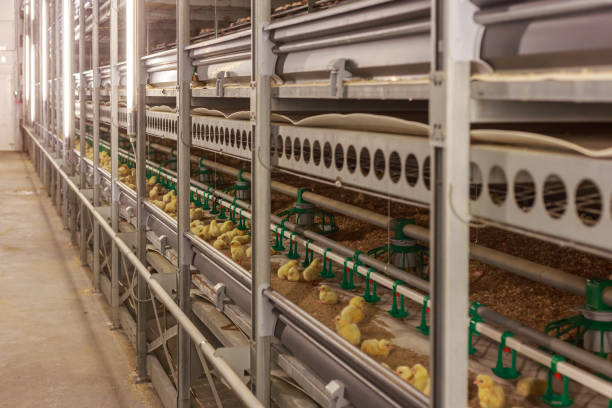
Niche Markets: Exploring niche markets like supplying specialized breeds or catering to specific dietary needs (e.g., free-range eggs) can create opportunities for differentiation and premium pricing.
The Role of Technology in Modern Poultry Farming
Technology is playing an increasingly important role in modernizing poultry farming practices in Nigeria. This includes the use of automated feeding and watering systems, climate control technologies, and data analytics. These technologies can improve efficiency, reduce labor costs, and enhance bird welfare and biosecurity.
Automated Systems: Automatic feeding and watering systems can ensure that birds receive the right amount of feed and water at the right time. This can improve feed efficiency and reduce labor costs.
Climate Control: Climate control technologies, such as ventilation systems and temperature sensors, can help maintain optimal environmental conditions for birds. This can improve bird health and productivity.
Data Analytics: Data analytics can be used to track various aspects of poultry production, such as feed consumption, egg production, and mortality rates. This information can help farmers make informed decisions and improve their operations.
Mobile Technology: Mobile apps can be used to manage poultry farms remotely. This includes monitoring bird health, controlling environmental conditions, and tracking inventory.
Precision Farming: Precision farming techniques, such as GPS and sensors, can be used to optimize poultry production. This can improve efficiency, reduce waste, and enhance sustainability.
Internet of Things (IoT): IoT devices can be used to collect data from poultry farms and transmit it to the cloud. This data can be used to monitor bird health, optimize feed consumption, and improve biosecurity.
The Future of Poultry Farming in Nigeria
The future of poultry farming in Nigeria looks promising. With a growing population, increasing demand for poultry products, and government support, the industry is poised for further growth and development. However, to realize its full potential, the industry needs to address the challenges it faces and embrace new technologies and sustainable practices.
By investing in research and development, improving infrastructure, and promoting access to finance, Nigeria can transform its poultry industry into a major economic force. This will not only create jobs and generate income, but also contribute to food security and improved nutrition for its citizens. The journey from backyard to business is already underway, and with continued effort and innovation, poultry farming in Nigeria can soar to new heights.



